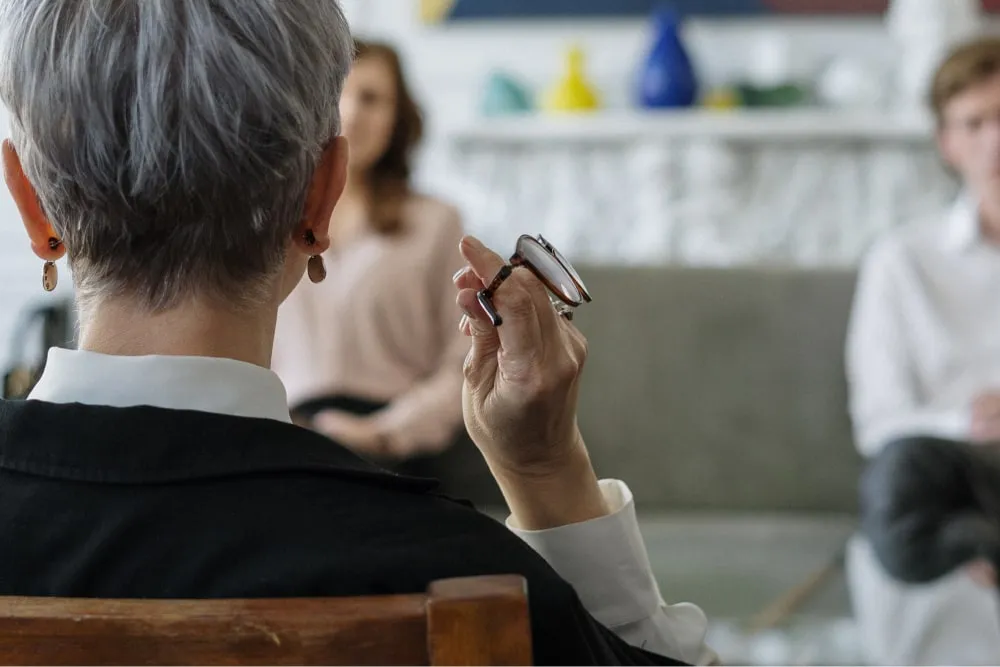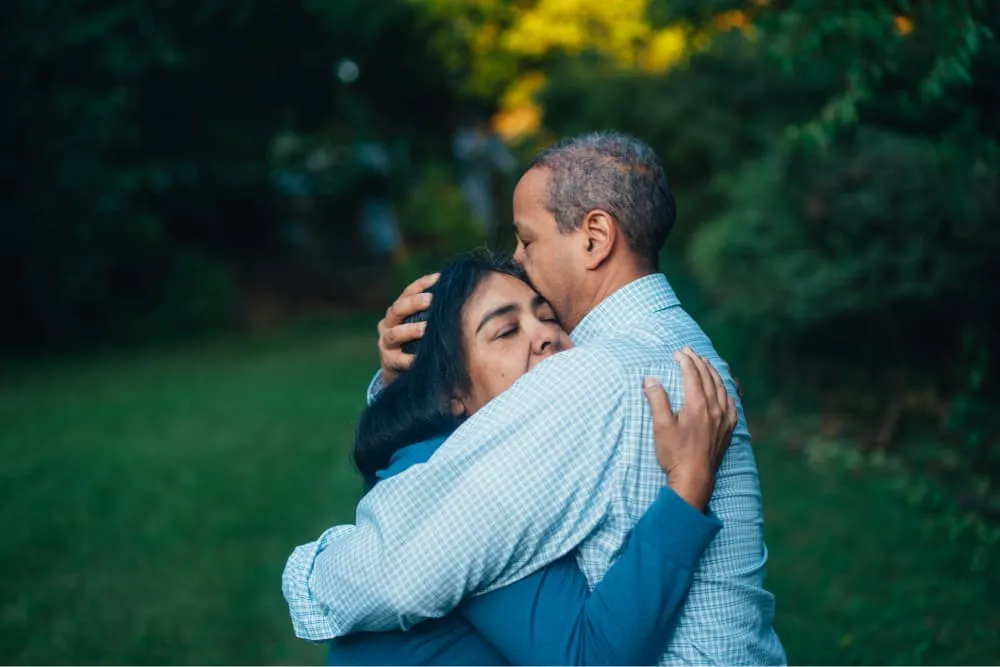What is a care partner?
A care partner is a mentor within an individual’s treatment program who is experienced in the field of eating disorders. They are there to help patients implement behavioral changes that will help aid them on their eating disorder recovery journey. These Care Partners provide consistent support throughout a patient’s treatment program and help them through challenges in their real life.
As with everything else at our virtual eating disorder program, a patient’s care partner is just a click away. All they have to do is open the app and they’ll be able to contact their care partner in a time of need—whether they are experiencing a crisis, have a question about grocery shopping, or would like to share a victory.
The countless benefits of a care partner
It’s important to us at Within Health that we foster a safe and nourishing space for people to recover from eating disorders. A patient’s care partner plays an important role in cultivating this safe space, as well as empowering and supporting the recovering individual.
Here are just some of the ways a care partner provides support and guidance:
- Joins with you to discuss reading opportunities, which can help to guide in your healing, or reflective opportunities, focused on self exploration, during recovery process
- Helps improve their patients’ relational and interpersonal skills
- Regularly checks in with their patient’s feelings, concerns, fears, etc.
- Assists the patient with day-to-day scheduling
- Helps the patient to become grounded should their partner when they are feeling triggered
- Ascertains and clarifies treatment goals and patient values
- Executes eating disorder recovery plans, including meal prep, cooking, and other self-care practices
How effective are care partners in eating disorder recovery?
Care partners, or mentors, are extremely effective in helping their mentees not only achieve eating disorder recovery but avoid relapse in the long run. According to a study published in the Journal of Eating Disorders, mentors may provide many benefits for mentees, including: (1)
- Reconnecting with others
- Supporting their re-engagement with the community
- Fostering hope
- Helping the mentee feel uniquely understood
And that’s not all—care partners benefit from this trusting and supportive relationship as well. According to that same study, mentors experienced an increased connection with self and others. Their mentorship also helped them positively reframe their eating disorder history. (1) And what’s better than having a mutually uplifting and empowering relationship?
Moreover, research suggests that peer mentorship during eating disorder recovery can also help improve: (2)
- Body dissatisfaction
- Body anxiety
- Depressive symptoms
- The number of mindful, balanced eating days
Integrated treatment and care at within
Of course, the care partner is just one part of the patient’s milieu, or treatment community. Eating disorder recovery requires a multidisciplinary and biopsychosocial approach composed of a team of healthcare professionals providing collaborative, integrated care. And this care acknowledges how every aspect of a person—from biological to psychological to social factors—may be affecting their eating disorder.
Members of a patient’s treatment team typically include:
- Nurses
- Psychotherapists
- Psychiatrists
- Dieticians
Because eating disorders affect everyone differently, we take a personalized approach to care. We take the time to get to know every patient, including their medical and psychiatric history, challenges, successes, and aspirations, in order to create individualized treatment plans with the patient’s unique needs in mind.



















































